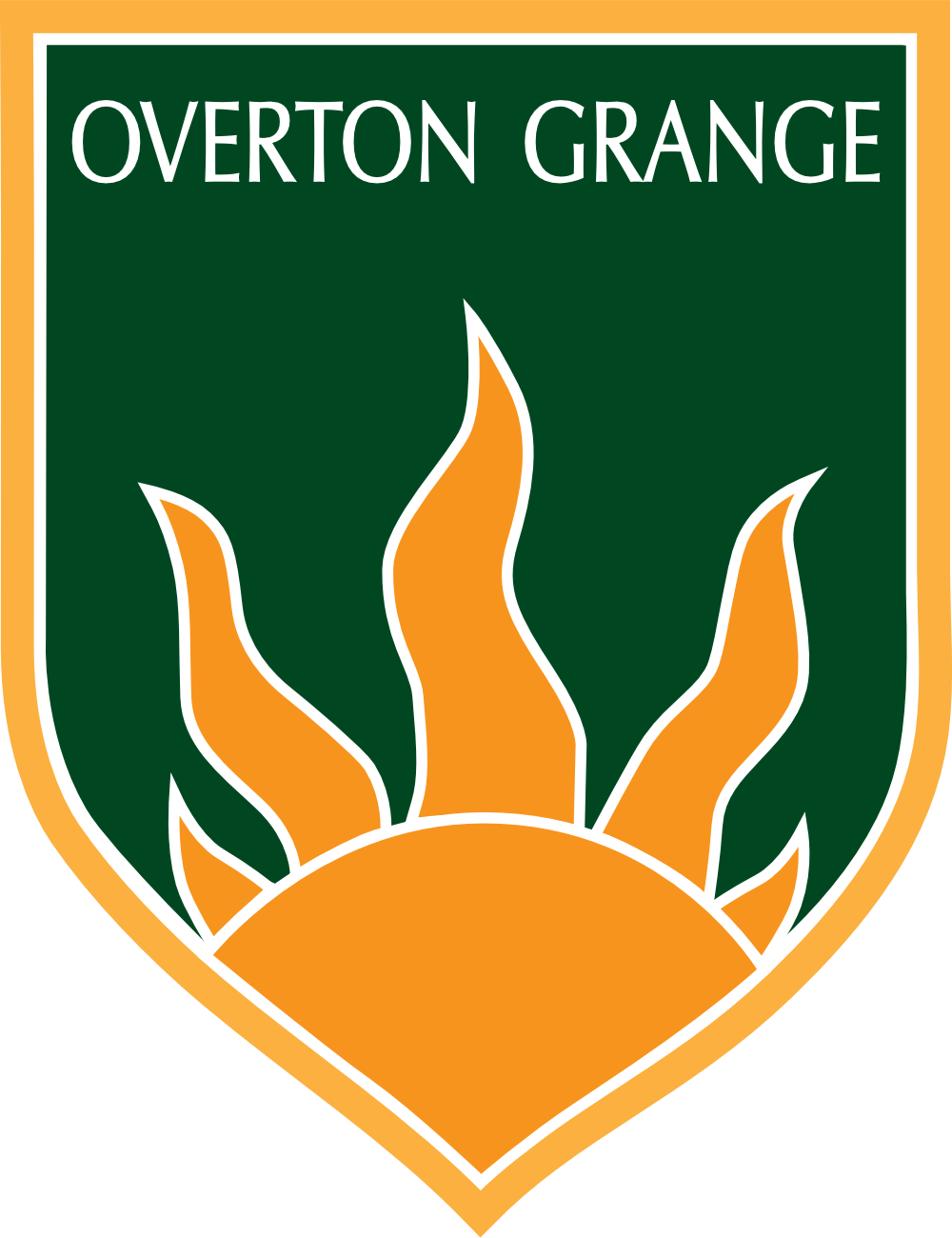Assessment
Detail on the assessment and reporting system for can be found in the following document:
Details on assessment dates are found on each year group page in the Learning section.
Examinations
The examinations taken at Overton Grange School are all approved by the School Examinations and Assessment Council.
Overton Grange is justly proud of its success over many years in achieving the very best for its students. The school enters students across the full ability range for examinations. It is therefore clear that the results represent significant achievements.
We emphasise excellence for all: within an atmosphere of success everyone is challenged to reach ever higher levels of attainment.
All examination information can be found on our examinations page:
Planning your revision
Planning your revision means that you can cover all the topics and know you will turn up to the exam fully prepared.
Points to remember:
You can only revise for so long before it becomes worthless
Don’t just revise for the examinations that are coming up first
Once exams start it is difficult to go home and revise
Plan your revision to include all subjects
Important to do the things you enjoy as it reduces stress
Each revision session should be no longer than 30- 45 mins
Be realistic to what you can do
Make sure you know what you are going to revise so you can have your notes ready
Include your other responsibilities to family etc
It is important to get the balance right you need to revise if you want to do well but the revision must be worthwhile. Each session you must decide what you are going to revise and test yourself at the end of each session. By revising you will take the stress out of examinations
Revision Method 1 Making Revision Cards
This methods is about summarising the main points:
Through repetition you learn the various facts.
You can make a set of cards and then keep them in handy. You can go through a whole topic very quickly.
10 mins going through the cards each day will help
Below are a couple of example cards that I have made for averages
Mean
The mean is the most common measure of average.
To calculate the mean add the numbers together and divide the total by the amount of numbers:
Mean = sum of numbers ÷ amount of numbers
Eg 4, 6, 10, 12 ,23 Add together =55 55/5 = 11
Median
If you place a set of numbers in order, the median number is the middle one.
If there are two middle numbers, the median is the mean of those two numbers.
4, 3,10,12, 5, 6, 8, 7, 11
3,4,5,6,7,8,10,11,12
Mode
The mode is the value that occurs most often.
The mode is the only average that can have more than one value.
When finding the mode, it helps to order the numbers first.
5, 6, 8,4,3,2,2,3,1,5,5,
Mode = 5
Revision Method 2: Mind Maps
They aim to help students put all the information about a topic into one area
They use pictures and colours as these are more easily remembered
Useful tips for exam preparation
Once the revision has been done there are a few things to give you that edge and help you perform well in an examination.
It is the same principle for when you do sport; you have to be in the right condition to allow you to perform.
Sleep
It is important that you get enough sleep before an exam. We all no how it feels when you are tired so being tired in an exam will not help.
Don’t stay up late at night to revise the day before. You may revise it but be too tired the next day to remember.
Exercise
Exercise can help you to reduce stress. Taking exercise can help you prepare for an examinations. It can also help you sleep well.
Eating and drinking well
Eating correctly is important to make sure you do not get hungry during an exam. Try to avoid a lot of sugary food before an exam as this will give you a sugar rush which may make you feel tired later.
Foods which are high in carbohydrates are best
Fizzy drinks v Water
Lots of students drink high sugar and caffeine while these may perk you up in the short term they can lead you to feeling tired after the effects wear off.
Drinking water studies have suggested will help you concentrate. This is because it is proven the de-hydration can effect performance in an exam and during sport.
An early sign of dehydration is feeling thirsty.
Obviously don’t drink too much water as that definitely will not help.
Reducing stress
Stress can affect performance and it is important that you realise that stress effects people differently. A little bit of stress can be good as you prepare yourself for an examination. IT shows that you are taking it seriously and want to do well. As a teacher I would worry about a student who is not stressed especially when it comes to the GCSE’s or A levels. But too much stress can affect students and how they do in examinations.

